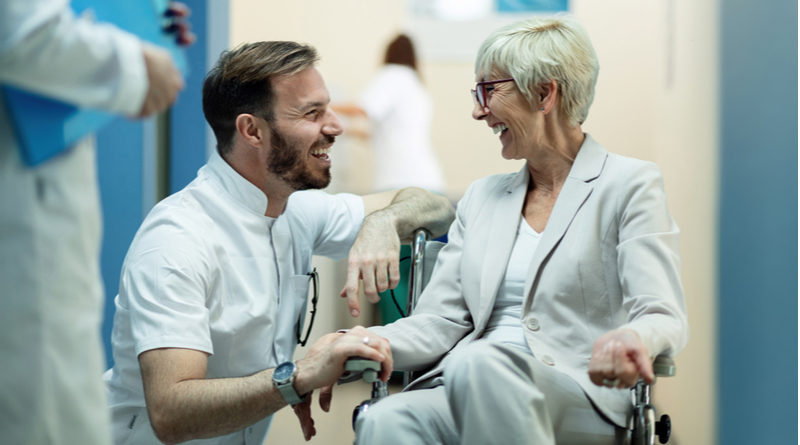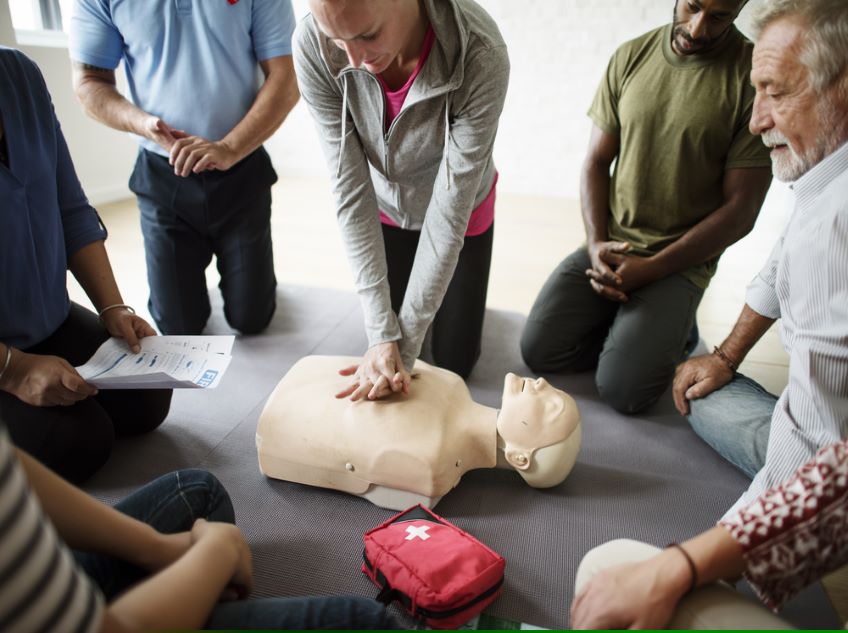Patient Care Courses
Considering a Course in Patient Care?
Are you interested in the management of care and the well-being of patients in the healthcare industry? Then a course in Patient Care could be perfect for you. Patient care refers to the prevention, treatment, and management of illness and the preservation of physical and mental well-being through services offered by health professionals.
Patient care coordination is about proactively managing the health and well-being of patients even when they are not in the doctor’s office, through support and education of the patients and their family members. This helps people to get as healthy as possible and stay as healthy as possible.
Patient-centered care is empowering. By playing an active role in their care both inside healthcare facilities and at home, patients learn good habits and how to care for themselves. They also take control of the decisions that affect their health. This confidence encourages people to do everything in their power to support their well-being.
What is Patient Care?
Direct patient care refers to activities that assist a patient in meeting their basic needs and any aspect of the health care of a patient. Indirect patient care refers to activities that focus on maintaining the environment in which care is delivered and do not require interaction between the health care provider and the patient. Charting and scheduling of procedures and tests are examples of this.
Around the world, people are living longer but often with multiple diseases and conditions that require care over many years. What is important to remember is that these people live with these diseases and conditions every day, all day – not only when they need to seek care or see a healthcare professional.
This is why patient-centered care is so important, patient care means ensuring that health services are tailored to people’s needs and are provided in partnership with them rather than simply given to them. Patient care means care where people, families, and communities are respected, informed, engaged, supported, and treated with dignity and compassion and where care doesn’t stop once a patient is discharged.
Why is Patient Care Important?
Good patient care can have lasting benefits – it improves the trust, experience, and outcomes people have from care, it increases the confidence and job satisfaction of health professionals, and the quality and efficiency of healthcare systems.
Patient care is putting people and their needs at the center of their healthcare. Essentially, patient care means that people get the right care at the right time and in the right place. Instead of only asking, “What is the matter with you?” patient care means that healthcare providers also ask, “What matters to you?”.
What Will I Learn?
- You will learn about important processes and techniques used in inpatient care.
- You will learn about patient hygiene procedures and environmental health and safety awareness and how to ensure patient safety and comfort.
- You will learn about basic human needs including physiological needs, safety, love, belonging, and self-esteem.
- You will learn how to understand patients better so that you can care for them better.
- You will learn about the equipment used for patient care and the important principles of patient personal hygiene.
- You will learn about patient transfers and administering prescribed therapy or treatments.
Career Opportunities
After completing your course in Patient Care, you could have a career in Caring, Nursing, Registered Nursing, Healthcare Administration and Management, Nursing Administration, Nursing Practice, Health Services Administration or Clinical Research Coordinator.
If you’re serious about doing a course in Patient Care and would like to learn more about caring and the healthcare industry, check out courses in the Nightcourses.co.uk national course finder.




